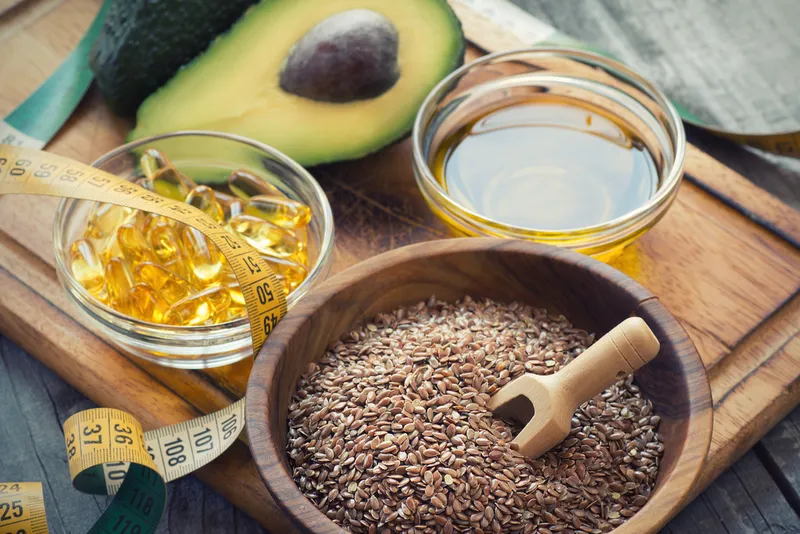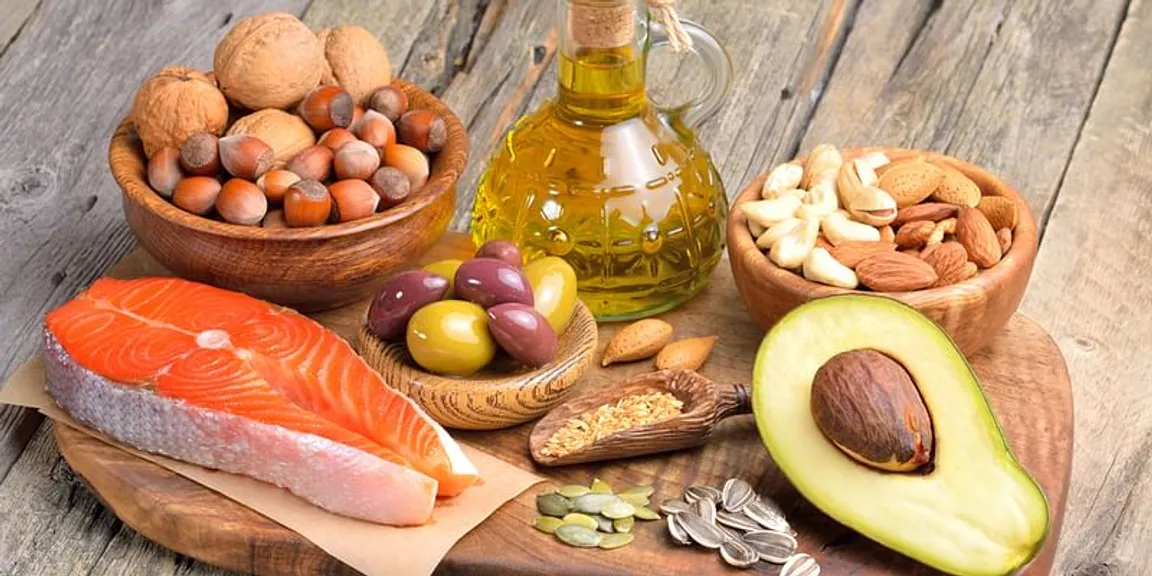Facts about fats: Here’s how healthy fats benefit us
A diet with healthy fats has several benefits including better blood sugar balance, helps protect brain health, builds stable hormones, builds stress resilience, etc.
There is so much confusion regarding fats. There are some diet philosophies that promote a low-fat trend.
However, low fat diets have several dangerous repercussions including mental health challenges, low hormones, inability to manage stress, and poor blood sugar regulation.
On the other hand, there are diets that are predominantly fat-based, which can also be a problem for many, especially if there are liver and gallbladder challenges. Most people need something moderate.
Benefits of healthy fats
A diet that includes healthy fats has several benefits including better blood sugar balance, helps protect brain health, builds stable hormones, insulates and protects bones and organs, maintains better temperature regulation, helps build stress resilience, and protects cellular function. Beyond all the great physiological benefits, fats also make our food taste amazing and help us feel satiated.
The different kinds of fats
Fats cannot be viewed within a narrow framework of just good fats and bad fats. There are aspects of supportive and damaging, but the categories of fats need some understanding before you choose which ones to include in your diet.
Saturated fats
These are solid at room temperature and seem to have a bad reputation. But their solid structure is what makes them great for cooking as they withstand higher levels of heat. When heated at high temperatures, they don’t get damaged.
These are the ones that are great for building your hormones.

Pure ghee | Source: Shutterstock
Within this category of saturated fats there are short-chain fatty acids like organic butter and ghee, which contain a compound called beta-hydroxybutyrate that feeds beneficial bacteria. The medium-chain fatty acids like coconut oil have anti-microbial properties.
If you have challenges with your liver, following a keto diet with high amounts of saturated fats can be detrimental. If you have low hormones or low levels of cholesterol, then you may want to include some saturated fats.
Monounsaturated fats
These are also called MUFA. They are usually liquid at room temperature. They are great for cardiovascular health as they help lower LDL cholesterol and triglycerides. They also help raise HDL.

Olive oil is a monounsaturated fat | Source: Shutterstock
The Mediterranean region consumes a large amount of MUFA in the form of olive oil. MUFA can also be found in sesame oil, avocado oil, and some nut oil. The only thing to consider with these oils is that some of them retain their most benefit when consumed raw. Avocado oil can be heated at high temperatures. Sesame oil can also be used in moderate heat.
Polyunsaturated fats
They are also called PUFA. There might be some confusion with this category. These are found as omega-3 and omega-6 fats. Omega-6 fats can be found in nut and seed oils, including sunflower oil. They are unstable and can become rancid, especially if you store them for long.
Healthy omega-6 oils like evening primrose oil help with hormone health, skin health, and inflammation. Omega-3 fats are found in flax, hemp, chia, walnuts, pumpkin seeds, macadamia, algae, and fish.

Omega-3 fats | Source: Shutterstock
Omega-3 fats are ALA or Alpha Linoleic Acid, EPA or eicosapentaenoic acid and DHA or docosahexaenoic acid. Omega-3 fats help with lowered inflammation. Excess omega-6 consumption can lead to reduced vitamin E, inflammation, and neurological impact. If you consume excessive amounts of sunflower oil and almost nil of omega-3 fats, it can be a reason for several inflammatory conditions.
Trans fats
Trans fats are something that we may all know as bad fats. Trans fats and hydrogenated fats are killer fats which are transformed to increase shelf life and are deadly! They are hard, stable fats and are not healthy fats and can disrupt the essential fatty acid activity in our body and actually lead to heart disease, raise LDL, lower HDL, increase triglycerides, increase inflammation, put us at risk for diabetes, interfere with enzyme structure that eliminate toxins and increase toxic load, interfere with our cell wall, disrupt hormones, upset metabolism, lower immunity and affect brain health.
As you can see, you cannot disregard an entire category of fats as just good or bad. There are several nuances within the category of saturated, monounsaturated, and polyunsaturated fats. The main thing to consider is your physiology to begin with.
If you are struggling with challenges such as fatty liver, then you may need to stay away from saturated fats for some time. This does not mean it should be forever.
Any dietary decision that we make should be influenced by that present moment in time based on physiology and requirements.
You do not need to decide that a specific choice of diet or fats is forever. There may be times that you need more saturated fats. There may times you need less. You might want to play with what you choose even based on the season. For example, your body may need more fats in the winter to insulate you. Your body may need lower fats overall in the summer. Being mindful of these subtleties and making your choices is ultimately where the perfect diet for you lies.
Edited by Megha Reddy








